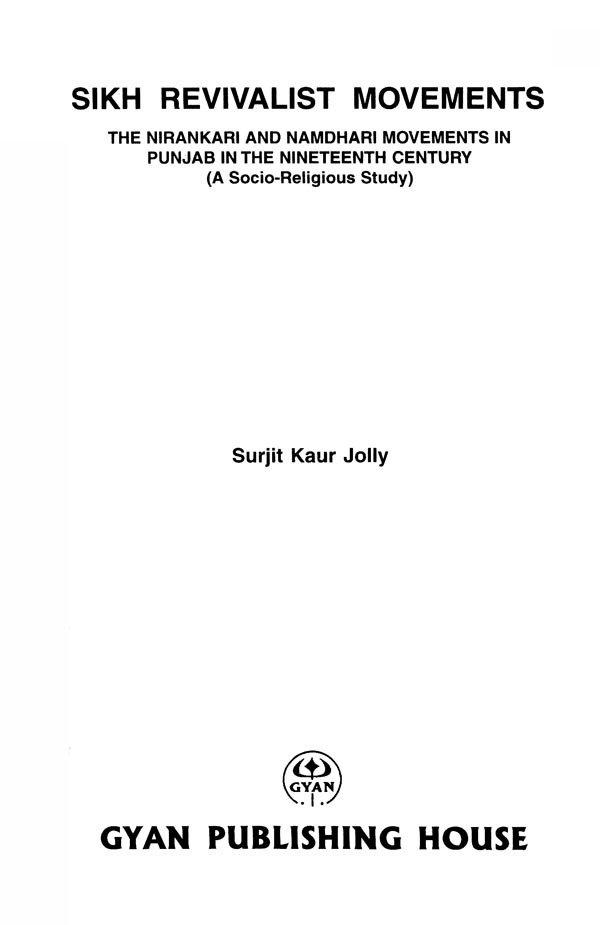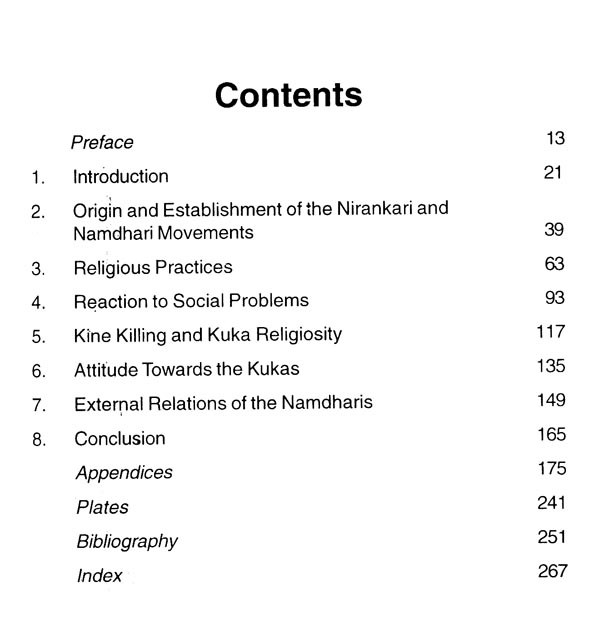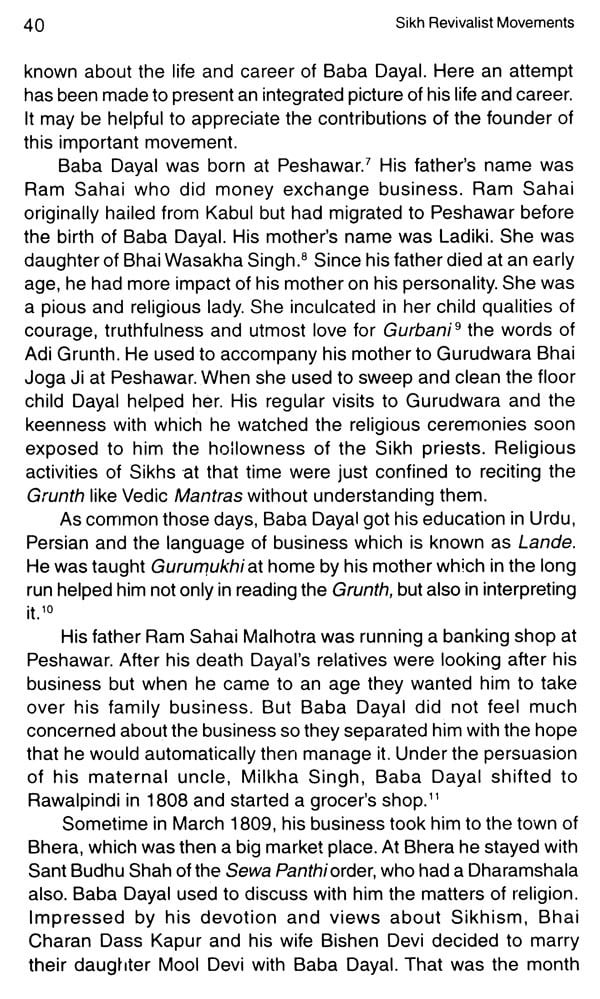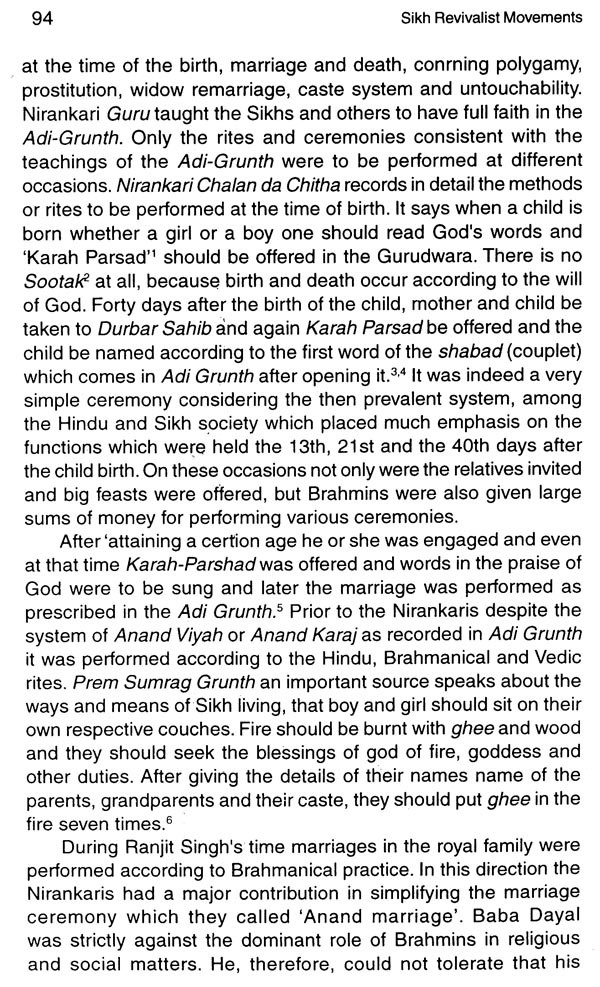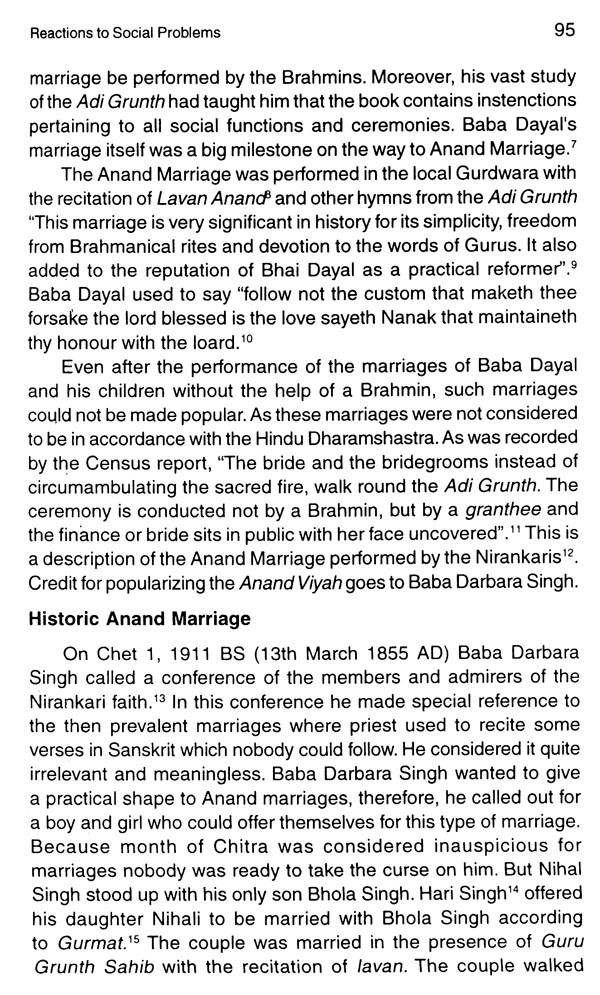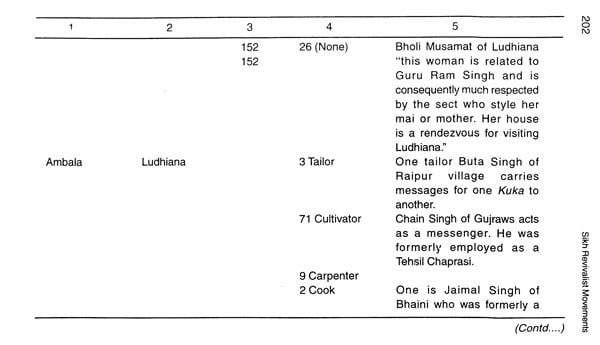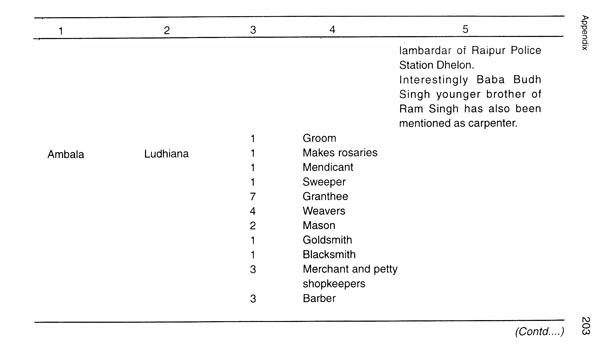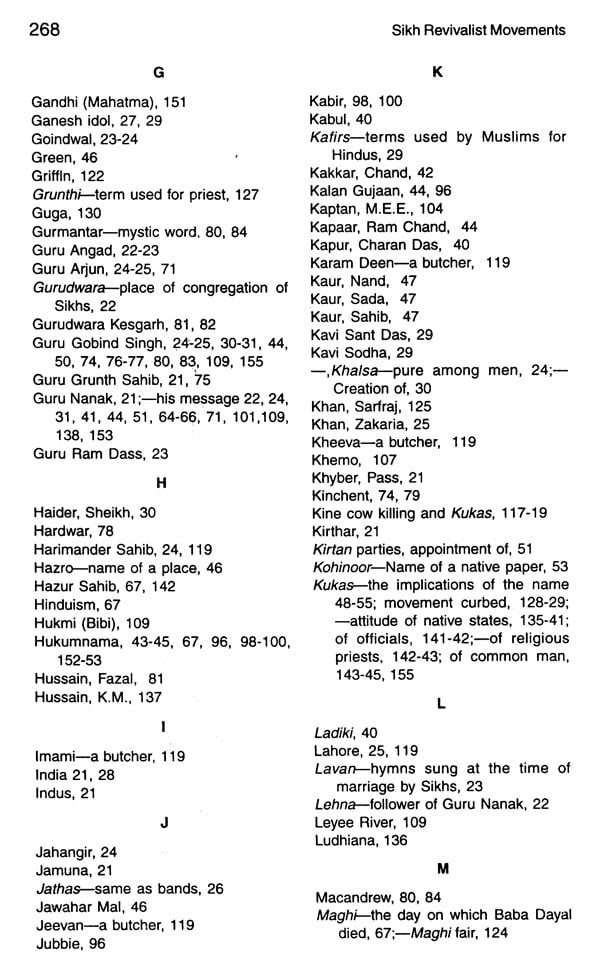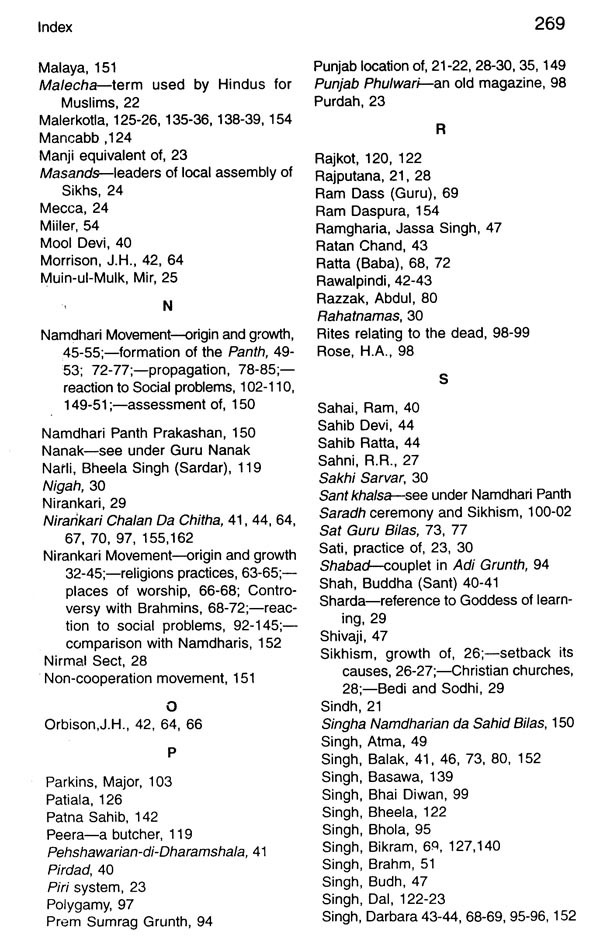
Sikh Revivalist Movements- The Nirankari and Namdhari Movements in Punjab in the Nineteenth Century (A Socio-Religious Study)
Book Specification
| Item Code: | AZG849 |
| Author: | Surjit Kaur Jolly |
| Publisher: | Gyan Publishing House, New Delhi |
| Language: | ENGLISH |
| Edition: | 2000 |
| ISBN: | 8121206952 |
| Pages: | 270 |
| Cover: | HARDCOVER |
| Other Details | 9.00x6.00 inch |
| Weight | 480 gm |
Book Description
It brings into light many interesting and rare documents which were hitherto lying unearthed. This would be at useful reference book for the students and research scholars working on sikhism and the history of Punjab, besides those who are interested in social, religious and political events in Punjab during that period.
She was bestowed upon the Eminent Personality Award, Best Administrator Award, 1998 Honoree by Who's Who, Award of Merit by Consumer Federation and Prashti Patra by Lions Club etc.
The social reform movements usually have their root in the basic religious principles. Any deviation from it, makes the society dogmatic and ritualistic. The call of those movements was again and again to return to original religious principles. According to Annie Besant "any movement to be strong in India must rest on a religious basis and so interwoven with roligion is the vory fibro of the Indian heart that it only throbs with full response when the roligious note has been struck which call out its sympathetic vibration".
The nineteenth century presents a picture not of political upheaval only but also of major changes in the socio-religious life of the country. This period also had the impact of the influx of Christian missionaries and the western culture and education. Thus in a way, the nineteenth century was an important period in the history of the Indian culture. It was effected by a number of factors which had posed serious challenges to its age-old customs, beliefs and traditions.
In Bengal Raja Ram Mohan Roy founded the Brahmo Samaj in 1828 A.D. and he was regarded as the pioneer, in organising the socio-religious reform movement. This movement has been rightly called as a first important attempt in giving an intellectual rationalism and enlightenment to the modom India.
Prarthna Samaj, an offshoot of Brahmo Samaj, was founded in Bombay in 1867. It's founder Madhav Gobind Ranade was a well known social reformer of Maharashtra.
**Contents and Sample Pages**
